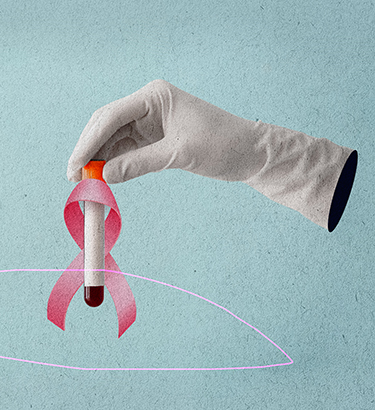The study's findings were published in July 2022 in the journal Cancers, based on data gleaned from a group of more than 10,000 women, 548 of whom had breast cancer. The test detected breast cancer with 92 percent overall sensitivity, a success rate that's an impressive five percentage points better than the rate for mammograms.
"The specificity is very good, in other words, the absence of false positives," said Timothy Crook, Ph.D., M.B.B.S., a medical oncologist based in London who was one of the study's authors. "And then we come down to sensitivity: how many positives does it pick up, and we're well into the 90s [percentile]. It will probably depend on demography, different populations, and it needs validation in real-world trials, but the sensitivity and specificity are exceptionally promising."











